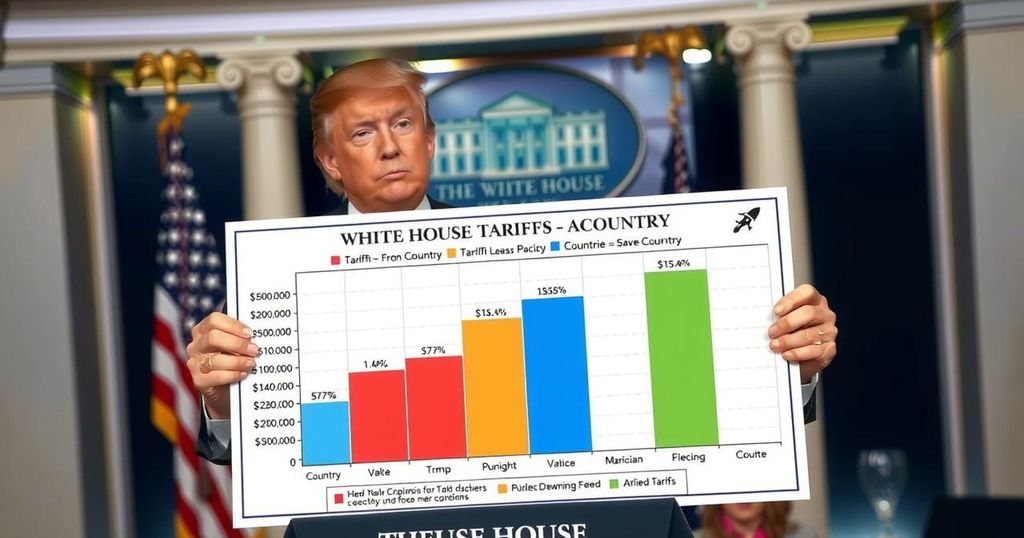White House Confirms No Exemptions on Tariffs as Trump Announces Liberation Day Plans

The White House is set to announce President Trump’s “Liberation Day tariff” plans on April 2, eliminating exemptions on reciprocal tariffs. Spokesperson Karoline Leavitt outlined significant tariffs from countries like Japan, the EU, and India, highlighting their detrimental effects on American exports and jobs. A comprehensive report on foreign trade barriers was also released to support the initiative, aiming to reform international trade practices.
On April 2, the White House is expected to announce President Donald Trump’s “Liberation Day tariff” plans, which will include no exemptions on reciprocal tariffs. Karoline Leavitt, the White House spokesperson, emphasized the need to address “unfair trade practices” that foreign nations impose on American products. During her briefing, she highlighted the significant tariffs applied by countries such as Japan, the EU, India, and Canada, asserting that these practices hinder American exports and impact domestic jobs.
Leavitt detailed major tariff rates including a 700% tariff from Japan on rice, a 50% tariff from the EU on dairy products, and a 100% tariff from India on agricultural goods. She argued that such tariffs create barriers that make it exceedingly difficult for American goods to compete in these markets and result in significant losses for American businesses and workers.
The Trump administration’s objective with these reciprocal tariffs is to reform trade relationships by matching foreign tariff rates. The rationale is to create a more equitable trading environment for American exporters who are facing increasing challenges due to foreign trade barriers. Leavitt pointed out that these measures are warranted due to decades of unfavorable trading conditions for American industries.
In conjunction with the tariff announcement, the Trump administration unveiled a comprehensive report identifying foreign countries’ trade barriers. The report, issued by the Office of the US Trade Representative, outlines various tariff rates and non-tariff barriers that impede US exports. It aims to expose and tackle restrictive practices that have hindered American businesses in the global market.
Many foreign trade barriers listed in the report are technical and relate to regulatory practices, such as stringent EU safety regulations affecting genetically modified crops. The report also criticized the Canadian dairy industry’s supply management system due to its significant import tariffs. Addressing these barriers is a priority for the current administration as it seeks to advocate for American exporters in international trade discussions.
In conclusion, the White House plans to implement reciprocal tariffs as part of President Trump’s forthcoming “Liberation Day” initiative, addressing significant tariffs enforced by other nations on American products. The administration seeks to rectify trade imbalances that they believe have adversely affected American businesses and workers. Concurrently, a report detailing foreign trade barriers highlights regulatory challenges that need to be navigated to facilitate US exports. The overall objective remains to level the playing field for American competitiveness in global markets.
Original Source: www.ndtv.com








